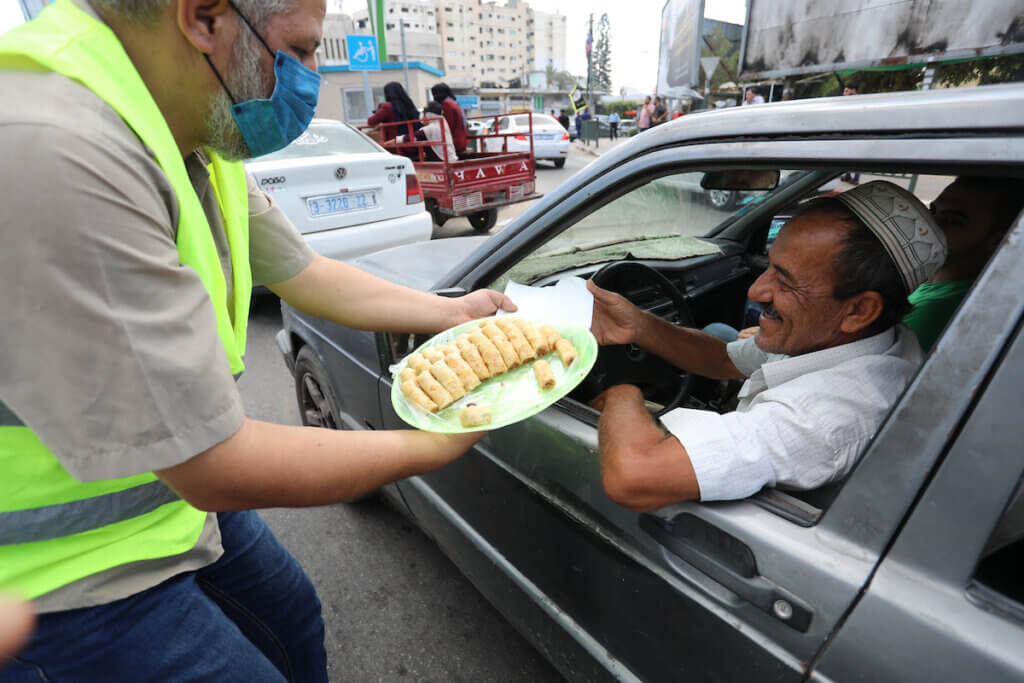Six Palestinian prisoners shocked the world on Monday when they escaped from a high security Israeli prison through a tunnel that they had reportedly been digging, undetected, for months.
The political prisoners, four of whom were serving life sentences, escaped the Gilboa prison in northern Israel, notorious for being one of Israel’s most militarized and highly guarded prisons.
The six prisoners, all of whom are from the Jenin area in the northern occupied West Bank, were identified as Mahmoud Abdullah Ardah, Muhammad Qassem Ardah, Yacoub Mahmoud Qadri, Ayham Nayef Kammaji, Zakaria Zubeidi and Munadil Yaqoub Infaat.
According to Israeli reports, the prisoners dug the entrance to the tunnel from the concrete floor underneath the sink in their prison cell, using a “rusty spoon” that they reportedly hid behind a poster.
They then reportedly discovered an empty tunnel that ran underneath the prison, and then dug an exit from the tunnel upwards through the ground at a site a few dozen meters away from the prison walls.
Haaretz reports that the empty tunnel found under the cell was a “structural flaw which the inmates discovered.”
‘A major failure’
Following the prison break, an official from the Israel Prison Service described the breach as “a major security and intelligence failure,” Haaretz said.
Israeli Prime Minister Naftali Bennet described the escape as a “serious incident that will require the efforts of all security services.”
Prison breaks out of Israeli jails like that of Monday’s are extremely rare; they have only happened a handful of times.
The most famous prisoner escape, before Monday’s, in Palestine’s history happened in 1987, when six prisoners from Gaza sawed off the bars of a bathroom in an Israeli prison in Gaza.
Israeli officials are treating the break as a major embarrassment for Israel’s security apparatus, as it happened right under the noses of Israeli guards at one of Israel’s most impenetrable prisons.
Three of the prisoners were also previously classified by Israeli authorities as potential escape risks, raising even more questions amongst Israel’s security apparatus as to how they were able to dig the tunnel for so long, undetected.
Following the escape, Israel authorities launched a widespread manhunt across Israel and the West Bank, deploying forces at major checkpoints, and areas where there had reportedly been sightings of the prisoners.
Haaretz reported on Tuesday that three people were detained in the Palestinian village of Na’ura, located in northern Israel, “on suspicion of assisting” the prisoners.
It was unclear if the prisoners had made it back to Jenin, but by Tuesday afternoon, the prisoners had still not been found.

While the Israeli government dealt with the fallout of the prison break, the mood in Palestine on Monday was a jubilant one.
For Palestinians the escape has symbolized one of their greatest collective “wins” in a long time, as an estimated 20% of the Palestinian population, and 40% of the Palestinian male population, has been imprisoned by Israel at some point in their lives.
Palestinians across the West Bank, Gaza, Jerusalem, and Israel took to the streets to celebrate on Monday, with people passing out sweets to strangers on the street as they held photos of the escaped prisoners.
In Jenin, where the six prisoners are from, huge celebrations broke out in the city’s main square, with people of all ages parading through the streets, singing songs and chanting slogans of freedom and liberation.
Palestinian social media was flooded with photos of the prisoners, with people calling them Palestinian “heroes.” For many, the escape from the prison has symbolized an escape from the “chains” of the occupation, and a “light at the end of the tunnel,” literally.
Translation: The greatest feeling is walking in the street, listening to patriotic music in the morning from most cars, all happy faces, you get to know each other without knowing each other.
Some pointed out that for them, the prisoners were not “escapees,” but rather they were liberated, and free. Others compared the escape to the famous film Shawshank Redemption, calling the escape “Shawshank 2.0”.
Ordinary Palestinians, along with leaders of political movements, urged their fellow citizens to assist the prisoners in any way possible. They expressed fears that the Israeli response to the break will be severe, with crackdowns across the West Bank and Palestinian areas everywhere expected to be severe.
Many Palestinians voiced concerns over their own government’s cooperation with Israel in its search for the escaped prisoners.
Palestinian rights groups urged that the rights of Palestinian prisoners be “safeguarded” during this time against any attempts at “collective punishment and retaliatory measures by the Israeli Prison Services.”
So where are the Palestinian voices in mainstream media?
Mondoweiss covers the full picture of the struggle for justice in Palestine. Read by tens of thousands of people each month, our truth-telling journalism is an essential counterweight to the propaganda that passes for news in mainstream and legacy media.
Our news and analysis is available to everyone – which is why we need your support. Please contribute so that we can continue to raise the voices of those who advocate for the rights of Palestinians to live in dignity and peace.
Palestinians today are struggling for their lives as mainstream media turns away. Please support journalism that amplifies the urgent voices calling for freedom and justice in Palestine.
Related posts:
Views: 0
 RSS Feed
RSS Feed















 September 8th, 2021
September 8th, 2021  Awake Goy
Awake Goy  Posted in
Posted in  Tags:
Tags: 
















